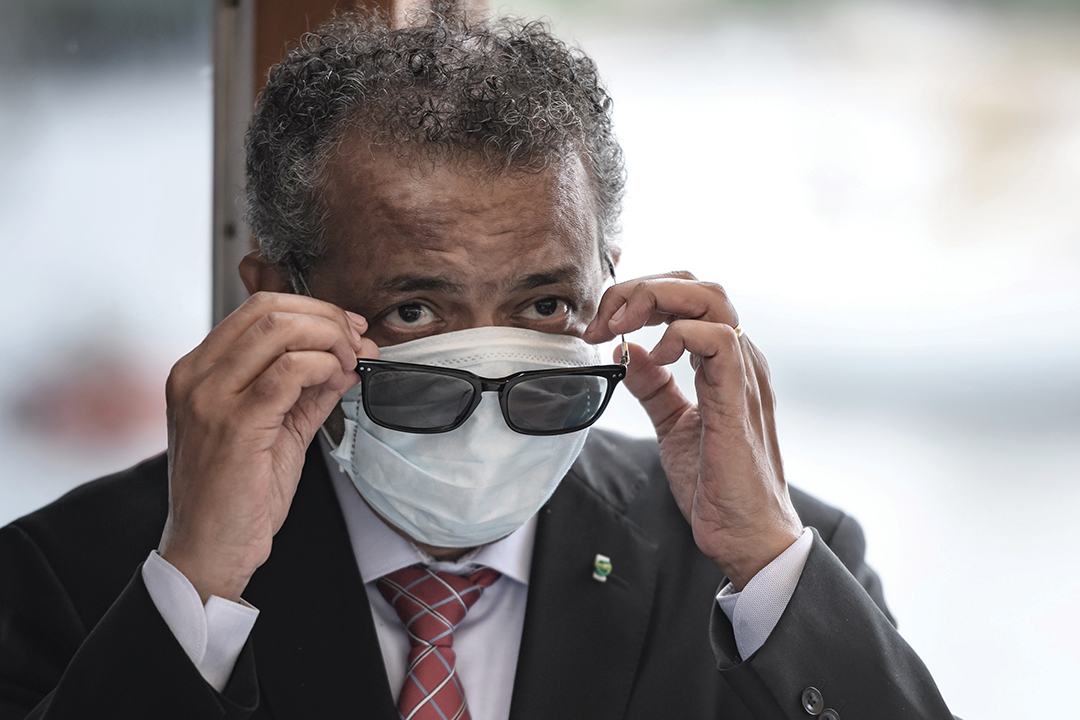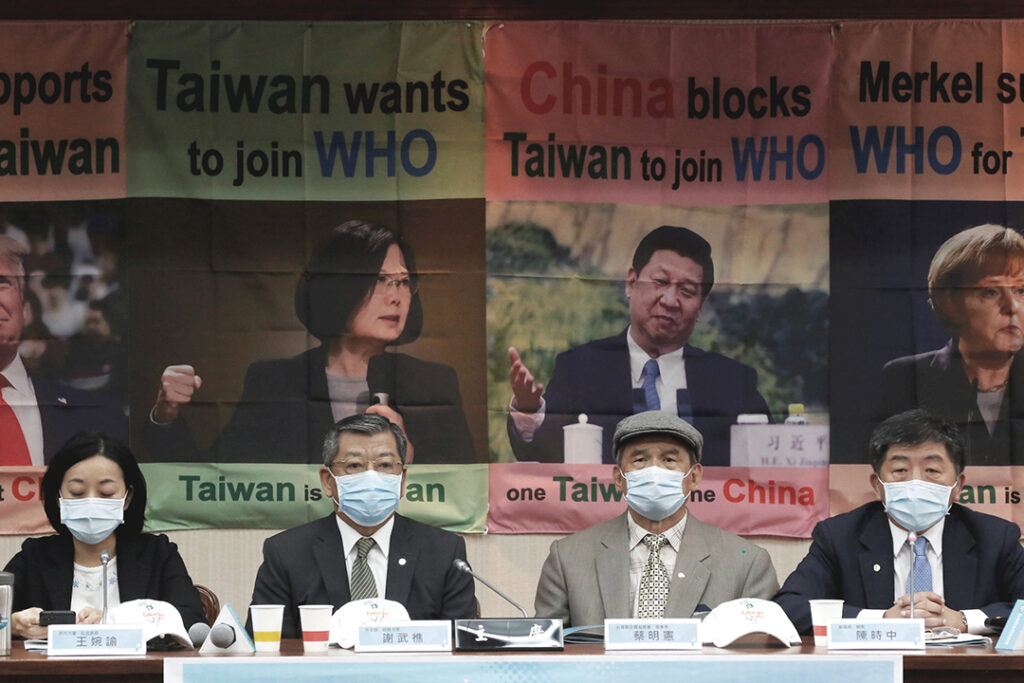Health organization faces backlash for deference to China
Indo-Pacific Defense FORUM
With the world watching, a global health body deferred to political pressure from the Chinese Communist Party as Chinese officials tried to obscure the genesis of a worldwide coronavirus pandemic. The controversy surrounding the actions of the World Health Organization (WHO) in the pandemic’s early stages led the United States to initially withdraw from the agency. As investigations continue into the origins of COVID-19 and the WHO’s response, more than 108 million people had been infected and 2.4 million had died worldwide by mid-February 2021.
QUESTIONABLE INFLUENCE: While publicly lavishing praise on the People’s Republic of China (PRC) for its transparency in fighting the virus, WHO officials privately complained about Beijing’s refusal to hand over data after the disease was first detected in Wuhan, China. WHO officials even lambasted countries for imposing travel bans on Chinese citizens.
“Beijing has never been shy about using every tool in its toolkit to pursue its agenda, and global organizations play an important role in that objective,” Daniel Wagner, chief executive officer at Country Risk Solutions, said. Wagner, a widely published author on public
affairs issues who has worked in risk management in the Indo-Pacific, summed up the PRC’s goals: “Beijing is in the process of creating an alternative world order based on its unique world view, which sees Chinese interest as paramount.”

The WHO did not declare COVID-19 a global emergency until January 30, 2020, during a meeting in which WHO Director-General Tedros Adhanom Ghebreyesus of Ethiopia profusely thanked the PRC for its cooperation. “We should have actually our respect and gratitude to China for what it’s doing,” he said, according to The Associated Press (AP). “It has already done incredible things to limit the transmission of the virus to other countries.”
Tedros won the election to lead WHO in 2017 over a candidate from the United Kingdom because of fierce lobbying by Beijing and 50 African states. Tedros worked closely with the PRC when he was Ethiopia’s health minister during a time when his country was borrowing billions from the PRC. Just months after taking the helm at WHO, he named former Zimbabwe dictator Robert Mugabe, a notorious human rights violator, a goodwill ambassador. Tedros backed down after an international uproar ensued.
“Diplomats said [Mugabe’s] appointment was a political payoff from Tedros Adhanom Ghebreyesus — the WHO’s first African director-general — to the PRC, a longtime ally of Mugabe, and the 50 or so African states that helped to secure Tedros’ election earlier this year,” columnist Rebecca Myers wrote in the U.K.’s The Sunday Times newspaper in October 2017.
The WHO’s deference to Beijing was not without consequence. The U.S. suspended payments to the health organization for 60 days in April 2020 pending an investigation into what officials called an information cover-up and mismanagement of the crisis. The U.S. eventually decided in early 2021 to rejoin the WHO under newly elected President Joe Biden, pledging to restore funding and work with the global body to advance therapeutics and vaccines worldwide.
POLITICAL PRESSURE: Although Taiwan is viewed as having achieved success in stopping the spread of COVID-19, it remains locked out of WHO membership due to the agency’s relationship with the PRC. The extent of the PRC’s influence over the WHO went viral in March 2020 when a top WHO official not only avoided a reporter’s questions about Taiwan but also hung up on her when she persisted.
By mid-February 2021, Taiwan’s population of nearly 24 million had recorded only 937 COVID-19 cases and nine deaths. Taiwan
officials argued they should not be left out of the pandemic discussion when they had pertinent information to share. Taiwan health officials emailed WHO on December 31, 2019, asking for more information about “atypical pneumonia cases.” Getting no response, Taiwan instituted health screenings that day for all flights from Wuhan and charged ahead with protecting its citizens. On January 26, 2020, Taiwan became the first country to ban inbound flights from Wuhan. Besides quarantining travelers early in the spread of the disease, Taiwan’s COVID-19 measures included closely monitoring people in quarantine.
“We hope through the test of this epidemic the WHO can recognize clearly that epidemics do not have national borders. No one place should be left out because any place that is left out could become a loophole. … Any place’s strength shouldn’t be neglected so that it can make contributions to the world,” Taiwan Health Minister Chen Shih-chung said at a news conference.
Questions concerning the WHO’s response to the pandemic run much deeper, however, than its exclusion of Taiwan. An AP investigation revealed that while WHO officials praised the PRC throughout January 2020 for its speedy public health response and for sharing the genetic map of the virus “immediately,” officials inside the agency were privately complaining that they were not receiving timely medical data. Chinese officials refused to release the genetic map of the deadly virus for more than a week after multiple government labs had fully decoded it. Records obtained by the AP show that WHO officials were frustrated that the PRC was stonewalling at a time when the outbreak could have been slowed.
“We’re currently at the stage where yes, they’re giving it to us 15 minutes before it appears on CCTV,” WHO’s top official in China,
Dr. Gauden Galea, said in one meeting, referring to the state-owned China Central Television.

